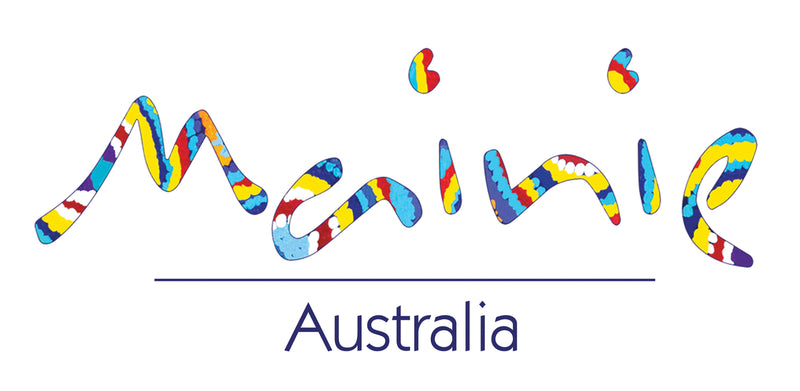Significant Dates for Indigenous Australians in May

Truganini, 1967 Referendum, Bringing Them Home Report.
In May, we commemorate the anniversaries of significant events for Australia's First Nations people:
~ May 1795 – Massacre of Bidjigal people of the Darug Nation in the Hawkesbury River region
~ 8 May 1876 - Death of Truganini
~ 21 May 1962 - The Commonwealth Electoral Act 1962
~ 27 May 1967 - The 1967 Referendum
~ 26 May 1997 - The Bringing Them Home report.
~ 26 May - National Sorry Day
May marks a significant month in the history of Indigenous Australians, reflecting both moments of tragedy and resilience in the face of colonial oppression. From the early massacres that marred the land to the pivotal legislative changes that reshaped the political landscape, each event holds profound implications for the ongoing journey towards reconciliation and healing.
May 1795 – Massacre of Bidjigal people of the Darug Nation in the Hawkesbury River region
The massacre of the Bidjigal people of the Darug Nation stands as a grim reminder of the violence inflicted upon Indigenous communities during the early years of British colonisation. As British colonists moved onto the lands of the Darug people along the Hawkesbury River, tensions escalated over land ownership and resource exploitation. The massacre, sanctioned by Lieutenant Governor William Paterson, resulted in the deaths of at least seven Bidjigal people and the capture of survivors, including women and children who were taken as prisoners. This tragic event foreshadowed decades of conflict and dispossession in the Hawkesbury River region, highlighting the systemic violence that characterised the colonial expansion.
8 May 1876 - Death of Truganini
Truganini remains an iconic figure in Tasmanian history, symbolising the resilience and endurance of Indigenous Tasmanians in the face of cultural genocide. Born around 1812, Truganini witnessed the devastating impact of the Black War and the forced relocation of Aboriginal Tasmanians to Flinders Island. Despite facing unimaginable hardship and loss, Truganini remained a steadfast advocate for her people and resistance leader against the colonial authorities. Her life and legacy are emblematic of the resilience and struggle of Indigenous Tasmanians against colonial oppression and cultural erasure.
21 May 1962 - The Commonwealth Electoral Act 1962
The passing of the Commonwealth Electoral Act 1962 represented a significant milestone in the struggle for Indigenous rights and representation in Australian democracy. By granting Indigenous Australians the right to enrol and vote in federal elections, including those in the Northern Territory, the Act challenged decades of systemic disenfranchisement and discrimination. This legislative change was the culmination of years of activism and advocacy, reflecting a growing recognition of Indigenous sovereignty and political agency within the Australian political landscape.
27 May 1967 - The 1967 Referendum
The 1967 referendum stands as a landmark moment in Australian history, signalling a decisive shift towards recognising the rights and dignity of Indigenous Australians within the nation's constitutional framework. By overwhelmingly endorsing the amendments to the Constitution, Australians voted to empower the federal government to make special laws for Indigenous peoples and to include them in official population counts. This historic vote reflected a growing national consensus on the need for reconciliation and justice, paving the way for significant legislative and social reforms in the decades that followed.
26 May 1997 - The Bringing Them Home report.
The tabling of the Bringing Them Home report in Federal Parliament on 26 May 1997 marked a critical turning point in the ongoing conversation about the Stolen Generations and the legacy of forced removal policies. Initiated by federal Attorney-General Michael Lavarch, the report shed light on the traumatic experiences of Indigenous children who were forcibly separated from their families and communities. Its recommendations, including calls for reparations and official apologies, sparked national debate and ultimately led to a formal apology from the Australian Government in 2008.
26 May - National Sorry Day
National Sorry Day, observed annually on 26th May, serves as a poignant reminder of the need for reconciliation and healing in Australia. Coinciding with the anniversary of the Bringing Them Home report, the day provides an opportunity for reflection and acknowledgment of past wrongs, particularly those inflicted upon the Stolen Generations. Through ceremonies, educational initiatives, and community events, Australians come together to honour the resilience of Indigenous peoples and commit to building a more inclusive and equitable society.
In conclusion, the significant events that have unfolded in May throughout Indigenous Australian history reflect both the enduring legacy of colonisation and the resilience of Indigenous cultures and communities. As we commemorate these milestones, it is essential to confront the injustices of the past, support ongoing efforts for reconciliation, and work towards a future where all Australians can live with dignity, respect, and equality.
